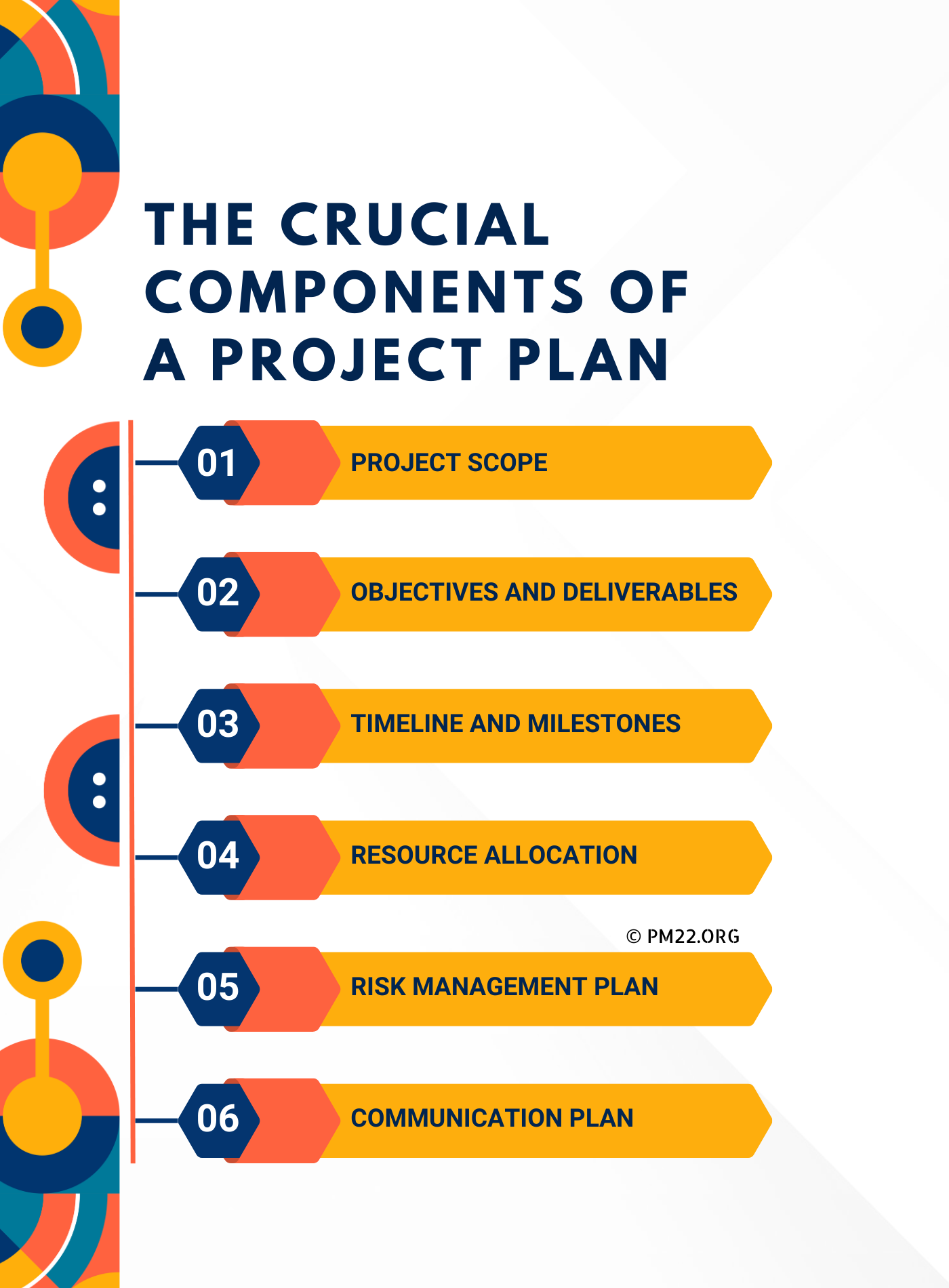 In the realm of project management, success is not a stroke of luck; it’s a meticulously crafted blueprint that guides every step of the journey. At the heart of this blueprint lies the project plan – a comprehensive roadmap that charts the course from inception to completion. While the specifics may vary from project to project, certain components remain constant, serving as the cornerstone of effective planning. Let’s delve into these crucial elements that form the backbone of any project plan.
In the realm of project management, success is not a stroke of luck; it’s a meticulously crafted blueprint that guides every step of the journey. At the heart of this blueprint lies the project plan – a comprehensive roadmap that charts the course from inception to completion. While the specifics may vary from project to project, certain components remain constant, serving as the cornerstone of effective planning. Let’s delve into these crucial elements that form the backbone of any project plan.
- Project Scope: Like the North Star guiding sailors through the night, the project scope illuminates the path ahead. It defines the project’s boundaries, outlining what is to be achieved and what falls beyond its purview. A well-defined scope safeguards against scope creep, ensuring that the project stays on track and within budget.
CLICK HERE TO DOWNLOAD 300+ PROJECT MANAGEMENT TEMPLATES & DOCUMENTS IN EXCEL
- Objectives and Deliverables: Every project has a destination, and its objectives and deliverables are milestones along the way. These are the tangible outcomes that the project aims to achieve, providing a clear sense of direction and purpose. Whether it’s a product launch, a construction project, or a marketing campaign, defining these objectives is essential for aligning efforts and measuring success.

- Timeline and Milestones: Time is the currency of project management, and a detailed timeline is the roadmap that keeps projects on schedule. Breaking down the project into manageable phases and setting milestones helps track progress and identify potential bottlenecks. From kickoff to final delivery, each milestone represents a significant achievement, signaling progress toward the ultimate goal.
- Resource Allocation: Just as a chef carefully selects ingredients for a recipe, project managers must allocate resources judiciously. Whether it’s human resources, finances, or materials, effective resource allocation is essential for optimizing productivity and minimizing waste. By matching resources to tasks and anticipating future needs, project managers ensure that the project operates like a well-oiled machine.

- Risk Management Plan: No journey is without its hazards, and projects are no exception. A robust risk management plan anticipates potential threats and outlines strategies for mitigating them. From technical challenges to budget overruns, identifying risks early empowers project teams to proactively address them, keeping the project on track and minimizing disruptions.
- Communication Plan: Like the veins that carry lifeblood throughout the body, effective communication flows through every aspect of a project. A well-crafted communication plan establishes channels for information exchange, ensuring that stakeholders remain informed and engaged. Whether it’s regular status updates, team meetings, or stakeholder consultations, clear and transparent communication fosters collaboration and alignment.
CLICK HERE TO DOWNLOAD 300+ PROJECT MANAGEMENT TEMPLATES & DOCUMENTS IN EXCEL
- Quality Management: In the pursuit of excellence, quality is non-negotiable. A robust quality management plan outlines the standards and processes for ensuring that deliverables meet or exceed expectations. From rigorous testing protocols to continuous feedback loops, quality management is woven into the fabric of every project, safeguarding against defects and ensuring customer satisfaction.

- Change Management: Flexibility is the hallmark of successful projects, and change is often the only constant. A proactive change management plan anticipates shifts in scope, requirements, or resources and outlines procedures for managing them effectively. By embracing change rather than resisting it, project teams can adapt swiftly to evolving circumstances, turning challenges into opportunities for growth.
In the intricate tapestry of project management, each component of the project plan plays a vital role, contributing to the overall success of the endeavor. Like pieces of a puzzle, these elements fit together seamlessly, providing clarity, direction, and structure. By paying careful attention to these crucial components, project managers can navigate even the most complex projects with confidence, turning vision into reality, one milestone at a time.
